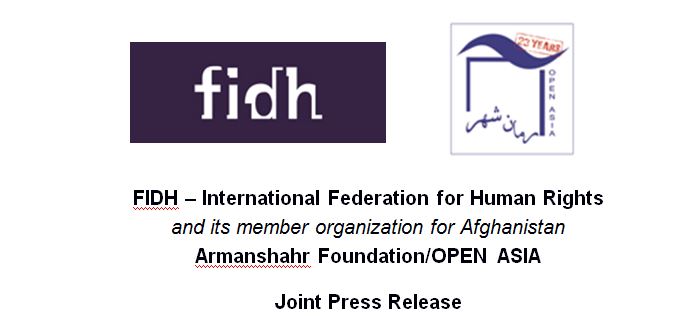

Kabul, Paris, 23 October 2018: The serious flaws that characterized Afghanistan’s parliamentary elections over the past weekend must be urgently addressed in order to sustain popular support for democratic processes in the country, FIDH and its member organization in Afghanistan, Armanshahr/OPEN ASIA, said today.
“This election showed us the good, the bad, and the ugly of today’s Afghanistan – the good was the bravery of citizens who defy widespread violence to vote; the bad was the sheer mismanagement of the electoral process by the authorities, which created an environment conducive to fraud; the ugly was the Taliban’s deplorable violence and terror against civilians. The fact that millions risked their lives to come out and cast their ballots shows that Afghans privilege democratic processes and deserve much better from the authorities,” said Armanshahr/OPEN ASIA Executive Director and FIDH Vice-President Guissou Jahangiri.
Parliamentary elections that were originally slated for October 2016 were finally held on 20 October 2018 throughout most of Afghanistan to elect new members of the Wolesi Jirga – Afghanistan’s Lower House of Parliament. According to preliminary estimates by the Independent Election Commission (IEC), 45% of registered voters voted, despite a series of deadly armed attacks on polling stations, which resulted in at least 78 people killed and 470 wounded.
Serious and extensive flaws in the election administration were reported throughout the country. Many polling centers stayed open longer than expected on 20 October to allow people to vote, following delays in opening and in setting up equipment for the casting of votes. Representatives of the IEC were absent in numerous centers and when present lacked the know-how and at times encouraged casting of votes for specific candidates. There have also been numerous reports of extensive technical difficulties, including failures in 40% of polling stations of biometric voter registration equipment set up at the last minute. Reports emerged of mismanagement of voter lists, including the absence on the lists of some registered voters and lists of registered voters that were sent to the wrong polling stations. After many polling stations did not open at all on 20 October, voting was extended for one more day in 400 polling stations across the country, although it has been reported that some remained closed despite the extension.
In addition, the authorities decided to postpone elections in Kandahar Province to 27 October due to security concerns after a terrorist attack by the Taliban on 19 October, which resulted in the deaths of the provincial police chief and the local intelligence head. FIDH and Armanshahr/OPEN ASIA call on the Afghan authorities to ensure that the right of people in Kandahar Province to safely cast their vote is guaranteed and that elections are held in Ghazni province, and that the Electoral Complaints Commission fully investigate complaints of fraud and mismanagement and report efficiently, independently, publicly and in a transparent manner on their findings.
FIDH and Armanshahr/OPEN ASIA also call on the Afghan authorities and its international partners to ensure that adequate measures are urgently taken in order to avoid that the shortcomings that marred the parliamentary elections will occur again in the lead-up and during the next Presidential election, scheduled for 20 April 2019.
Press contacts:
Ms. Audrey Couprie (French, English) – Tel: +33648059157 (Paris)

